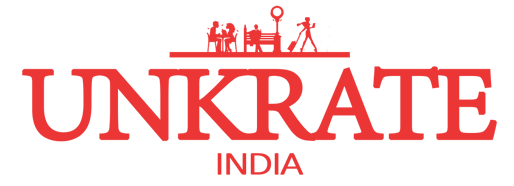“Eight million children live in institutions. Every one of them deserves a family. Let’s create miracles for them.” That sums up the core philosophy of the Miracle Foundation, a non-profit that is here to help people make a difference in the lives of orphaned children. Founded on Mother’s Day in 2000, the Miracle Foundation was established by Caroline Boudreaux.
On starting Miracle Foundation on Mother’s Day
Well, it wasn’t always my intention to start the Miracle Foundation on Mother’s Day, although it’s quite miraculous that it happened that way. Here’s what happened:
On Mother’s Day in 2000, I was in rural India and met orphaned children for the very first time. I had been invited to dinner at the home of a local family. Nothing could have prepared me for what I was to encounter there. When I arrived, more than 100 hungry, beautiful, parentless children greeted me.
Every single one of them was vying for my attention, sometimes pushing each other out of the way for a hug from me or to touch my hands. It was overwhelming. They were the sweetest, saddest children I had ever seen. There were so many, and every single one was precious and perfect, desperately in need of love, attention—someone to care.
A one-and-a-half year old girl named Sheebani came and put her head on my knee. I picked her up and she pushed her body into mine. I sang her a lullaby and rocked her to sleep. I went upstairs to put her into her crib, and was shocked to see that there wasn’t one. Instead, the room was filled with hard, wooden-slatted beds.
I laid that angel down and heard her bones hit the boards. I broke. I couldn’t believe that any child had to live like this. Here I was, traveling around without a care, and these children were going to bed hungry and lonely every night, on hard wooden beds. I was angry, hurt, and embarrassed.
The day was auspicious: It was Mother’s Day. I decided I had to do something to help them. I simply could not go on with my life as if they didn’t exist. I couldn’t un-know. I prayed that others would help me.
The idea for the Miracle Foundation was born that day. Since then—miraculously—people of all ages, from all walks of life, and from all socioeconomic backgrounds have joined us on this journey. We’ve developed a systematic, measurable, scalable way to improve the quality of care being given to parentless children, and we’re focused on expanding to support even more kids in need. Our goal is for every single child to have a loving family and until that happens, Mother’s Day isn’t going to have the integrity it should.
Inspiration behind this initiative
After that fateful night at an orphanage in India, I started to do my research. Eight million children live like those kids did, in institutions, many with deplorable conditions, where their most basic needs are not met. The children are often hungry, scared, confused, and lonely. Even when managed by people with good intentions, children’s homes often lack the necessary funds, resources, and knowledge to properly provide for the kids in their care.
The children are my inspiration. Our goal is to have every orphaned child become a healthy, happy, income-producing person—and break out of the cycle of poverty. There are eight million children living in institutions, and every one of them deserves a family.
My dream is for every orphaned child to have a family and feel a sense of belonging.
On keeping oneself motivated at work
I think about the children. I simply will not quit on them. I truly believe that, in one generation, we can end the suffering of children without parents—that’s what keeps me motivated. It will take a concerted effort from governments, NGOs, and caring donors, but it is possible. And how could we not help these little angels?
We are working on seven of the 17 Sustainable Development Goals issued by the United Nations in 2015. Developing key partnerships with other governments, companies, and organizations working on these Global Goals is a huge focus for us, so we can together make an even bigger impact for parentless children. It’s helpful to be working within such an incredible global movement around the Sustainable Development Goals. There’s an energy about the progress being made, and having specific goals to work toward make the work that much more exciting.
On keeping a balance between personal and professional life
I am passionate about this work, for sure. I could work all the time, but I’m also pretty good at unplugging. My husband Ed and I love to cook and work out together. We love live music, playing games, and going to the neighborhood pool. I meditate regularly and have a good time on a regular basis.
Skills which are important to be a good leader
I think one of the most important qualities of a leader is the ability to know your strengths and weaknesses, and not be too proud to admit your weaknesses.
I am proud of hiring and working with the right people to figure out how to truly change the lives of the children we serve. I’m proud of knowing what I am not good at and I’m proud that my ego lets me admit when I need help. Surrounding myself with experts and giving them the room and tools to do their jobs has made our organization what it is today.
On whether it is important to have an International Women’s Day
Yes, absolutely! I’ve been blessed with a life full of love. I grew up in a large family, with lots of brothers and sisters and supported in every way by my loving parents. My parents instilled in me the values of equality and empathy. Pairing my confidence, passion, and quality of never being too proud to ask for help, I rarely encounter a situation in which I feel held back because of my gender.
But that’s not reality for many women around the world. The truth is that many women aren’t given equal opportunities, and their voices aren’t being heard.
International Women’s Day is important because the economic, political, and social progress women are making should be celebrated! If you educate and nurture a girl, she’ll grow up to educate and nurture a whole family.
Everyone knows a woman. On International Women’s Day and every day, I urge you to make the women you encounter feel respected, loved, appreciated. When women do well, we all do better.
On the way forward in life
I’ve always been open to saying “YES” to new opportunities—new hobbies, new connections, new friendships, new foods, new experiences, new countries. And it’s opened countless professional, and personal doors throughout my life.
While I’m not sure what new opportunities are around the corner for me, I’m certain I’ll be open to saying “YES” to them.
Tips for women who want to do something similar
Do it. Do what women are so good at and get behind a great organization and help make them even greater. There has never been a better time to help the world. The wind is at our backs, and there are so many great NGOs and social impact ventures to get involved with.
Also, get a mentor. I have had so many mentors. Alan Graham who started Mobile Loaves and Fishes was our first Board chair and taught me the importance of letting others help me. Joan Holmes, Founding President of The Hunger Project, is a spiritual mentor for me and has taught me how to see the world of possibilities and represent the poor with dignity.
Together, Alan and Joan have taught me the real purpose of my work with the Miracle Foundation. When I started on this mission, I believed it was all about helping children. But over the years, I have learned that people have a strong hunger to help others and make a real difference. People want a purpose.
Ultimately, our work is about finding ways for the spiritually hungry to feed the physically hungry. When you bring these two groups together—the ‘haves’ who wish to give and the ‘have nots’ who need their help—miracles happen.
The Miracle Foundation helps bridge that gap between those who want to give miracles, and the children who desperately need them.



